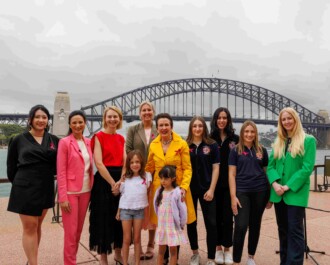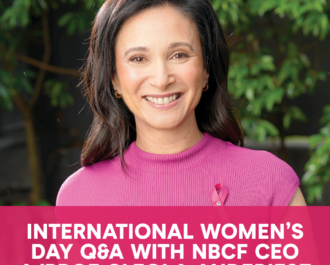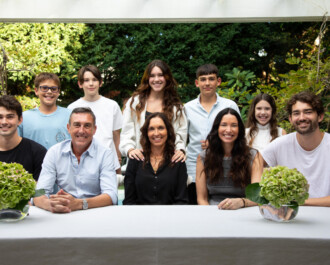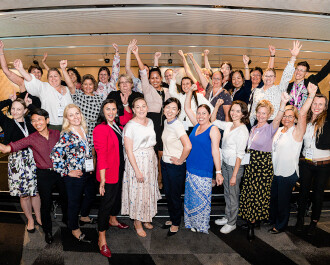
20 February 2018: The National Breast Cancer Foundation (NBCF)’s Bridge to Zero Deaths event returns for its second year in 2018, climbing for Breast Cancer Research, and keeping our bright researchers on the road to discovery. All funds raised will support NBCF to work towards the goal of Zero Deaths from breast cancer.
The Bridge to Zero Deaths fundraiser will take place on Friday 18 May. Supporters will help NBCF create a better tomorrow for those impacted by breast cancer, while taking in one of the most spectacular sights the city has to offer by climbing the iconic Sydney Harbour Bridge.
Held at BridgeClimb Sydney, the event will see individuals grouped into teams, with each member raising a minimum of $1,000 including the $200 registration fee. This will provide a huge boost to Australian breast cancer researchers who are working hard to discover better treatments for those affected.
Breast cancer is the most commonly diagnosed cancer in Australia with an estimated 18,235 new cases identified in 20181. Despite great improvements in survival rates, approximately eight Australian women are dying of breast cancer every day[1] – mothers, sisters, wives, daughters and friends.
With more people being diagnosed with breast cancer each year, more effective treatments are urgently needed, so women and men can experience better quality of life after a breast cancer diagnosis.
National Breast Cancer Foundation Chief Executive Officer Professor Sarah Hosking is encouraging the community and businesses to rally their teams for Bridge to Zero Deaths and support those who are diagnosed every year.
“Research into more effective treatments is absolutely vital to improving outcomes and, ultimately, saving lives. Initiatives such as Bridge to Zero Deaths are crucial to help raise the funds needed to keep our researchers in the lab and on the road to discovery,” said Professor Hosking.
”Every new injection of funds means that the pace of research can be accelerated, helping those affected by breast cancer see the benefits from new treatments a lot sooner,” she continued.
National Breast Cancer Foundation funded researcher Professor Sandra O’Toole from the Garvan Institute for Medical Research is grateful to be a part of an event with such passionate, well-informed and motivated fundraisers.
“In Australia, funding is the biggest challenge for the research community year on year. A large number of researchers are competing for the same funding, meaning a lot of high-quality research isn’t being supported,” Professor O’Toole explained.
“Without the National Breast Cancer Foundation, a lot of talented individuals wouldn’t be able to make a difference with their vital research. The funding raised this year will help advance more research on cellular genomics and hopefully provide unprecedented insights into how cells work individually and together,” she said.
Barbe Dolan, a valued member of the National Breast Cancer Foundation’s Speakers Network, was first diagnosed with breast cancer in 2002 when her three children were in primary school. Despite having successful treatment, five years later she found another lump and was treated with further surgery and chemotherapy.
She found that being a part of Bridge to Zero Deaths had a very personal meaning for her: “The BridgeClimb in itself was a very symbolic representation for me on the cancer journey. There was nervous anticipation, hard work to get to the summit, barriers to climb over and then the joy and satisfaction when it was completed by being back on the ground,” she said.
Barbe is a strong advocate for breast cancer research and actively shares her story of being diagnosed with breast cancer to help the National Breast Cancer Foundation raise more funds for research. She has now been clear for 10 years since her last diagnosis.
[1] Cancer Australia. Breast cancer statistics. Available at: https://canceraustralia.gov.au/affected-cancer/cancer-types/breast-cancer/breast-cancer-statistics (last accessed February 2018)
You can download a copy of this media release here.
More News Articles
View all News


